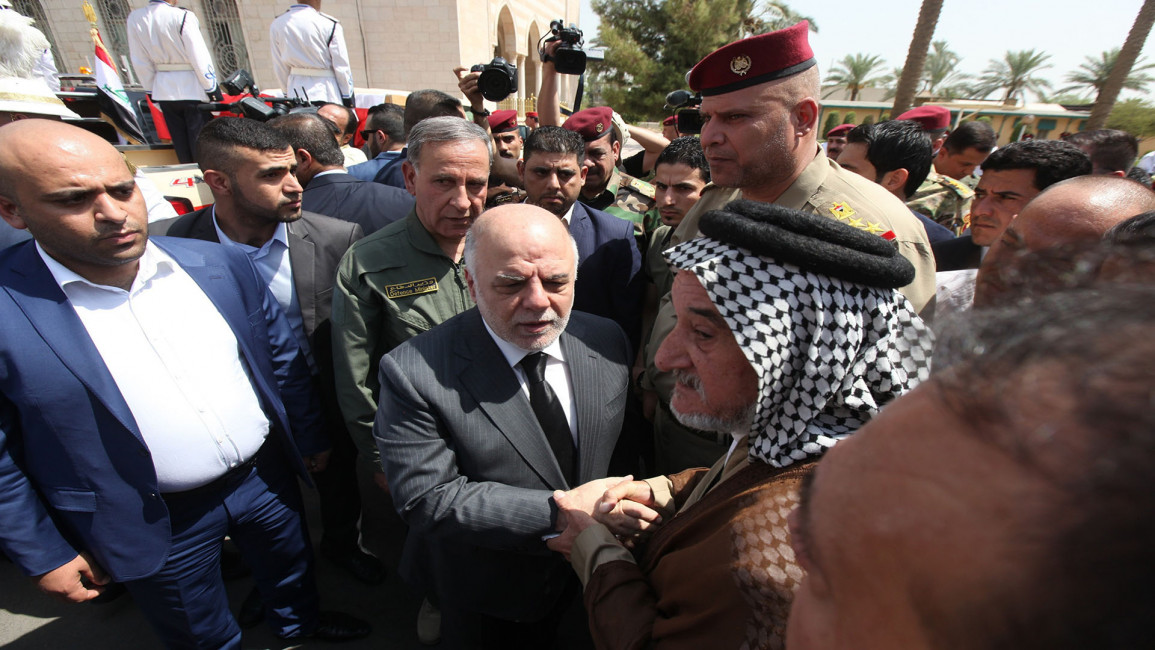Iraq's leaders push legislative measures to implement reforms
A committee charged with amending the constitution is examining the reforms to measure their compatibility and conflicting points with the text of the constitution.
The committee tasked with drafting constitutional amendments is studying a plan for making amendments to constitutional clauses that stand in the way of reforms."
A member of the committee, MP Saleem Shawqi, told al-Araby: "The reforms that were launched by Abadi called for the activation of the committee, which has started to study the reforms plan and identify the points of conflict they have with the constitution."
President Fouad Maasoum, Prime Minister Haider Abadi and Parliament Speaker Saleem al-Jabouri have discussed the implementation of Abadi's reforms during a meeting on Monday evening.
They also discussed the security and political situation in the country, a source close to the presidency told al-Araby al-Jadeed.
The source added that the three agreed to exert pressure on political blocs to expeditea the passage of a number of bills including the National Guard draft legislation.
National Guard
Iraq's cabinet erlier this year approved a draft law creating a national guard, which Sunni political figures have described as a necessary step to achieving national reconciliation.
But a measure to reform the government's ban on former Baath Party members from government proved divisive. Sunni ministers boycotted the second draft law, saying it did not go far enough, while the rest of the cabinet approved it.
| The national guard law would see the creation of a national guard that would include Iraq's Sunni communities. |
At the time, Abadi's spokesman Rafid Jaboori applauded the sending of the national guard law to parliament as "a way to confront ISIL", a reference to the militant group Islamic State which controls large sections of the country.
The national guard law would see the creation of a national guard that would include Iraq's Sunni communities, a key Sunni demand for achieving national reconciliation and an essential measure in defeating Islamic State group (IS).
Sunni political and tribal leaders have billed the national guard law as a way to handle their own security in combating the militant group.
The guard would be a locally-based force, answerable to the provincial government, and then the prime minister. Sunni leaders hope it will empower their communities, who distrust the army and national police they blame for carrying out indiscriminate arrests in the past.
Ending the ban on ex-members of the Baath Party, which ruled Iraq before the US-led invasion to topple Saddam
| Iraq's debaathification policies have already been amended twice since 2003. |
Hussein in 2003, from public service has also been a main Sunni demand.
But Sunni cabinet members were disappointed by the second draft law.
Iraq's debaathification policies have already been amended twice since 2003, most recently at the beginning of the previous government's term in 2010.
However, past efforts have failed to mend the damage from the blanket expulsion of former Baath members, mostly Sunnis, from public service in the first years of the military occupation of Iraq.



